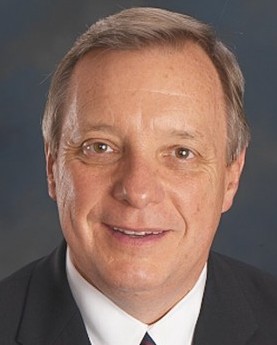Health care changes take effect

September 22, 2010
The health care reform bill passed six months ago and several changes will go into effect this week.
Senator Dick Durbin (D-Ill.) held a telephone conference with health service companies to inform media representatives about the changes.
“The health care bill is all about fairness,” said Jim Duffett, executive director for the Campaign for Better Health Care.
Duffett introduced Durbin, who explained how the new laws affect insurance companies.
“The state of Illinois has more of these health insurance contracts rescissions than any state in America,” Durbin said. “Between 2004 and 2008, the insurance industry dropped 5,632 Illinoisans from the rolls.”
Durbin said this is one of the most important changes of the health care reform.
Some notable changes that will go into effect this week include lifetime dollar caps on coverage are abolished, and most importantly for students and recent graduates, plans must allow parents to keep their children on the policy up to age 26, according a Sept. 9 Associated Press article.
The majority of Republicans, however, maintain opposition to the changes and continue to voice their opinions about the insufficiency of the law. According to the Associated Press, about 20 states will oppose the health care changes in court, though Illinois is not one of them.
Austin M.D. Quick, senior political science major and chairman emeritus of the NIU College Republicans, said he supports the motion of states to challenge the law.
“A lot of the elected officials voted on this bill but didn’t read it. That is problematic to me as a taxpayer and a Republican,” Quick said. “The federal government is getting too large and [those] states are just looking to make a change.”
Illinois, led by Democratic Governor Pat Quinn, has been an active partner in the law’s implementation so far. It started a new health plan for people with pre-existing conditions and accepted a $1 million federal grant to put more muscle into state review of health insurance premium increases.
On Wednesday, Quinn’s council on health reform drew about 150 people to its first meeting. Other meetings are set for Oct. 5 in Peoria and Nov. 16 in Springfield. A meeting in southern Illinois will be announced later.
Quinn formed the council in July. Its members include the heads of state agencies overseeing public health, insurance, services to the elderly and the state budget.
Illinois Republican gubernatorial candidate Bill Brady “would consider seeking to join other states in opposing implementation of the federal health care program,” said Brady spokeswoman Patty Schuh.
“Bill would also work to improve and simplify our existing health insurance system and retain individual freedoms so people can choose the coverage that is right for them,” Schuh said.
According to an Associated Press poll, 23 percent of Americans surveyed “strongly oppose the law changing the health care system that the U.S. Congress passed last March.”
HHS Regional Director Cristal Thomas said during the media conference call that the provision is a great option for young adults and college students.
“These provisions are really a bridge that will help get people to 2014, and that’s when the new health insurance exchanges are going to go into effect,” Thomas said.
She also said that the college students graduating in 3 or 4 years will be able to purchase insurance coverage on their own regardless of their health status or pre-existing conditions.
Quick said while he thinks health care reform is needed, he doesn’t support the current plan.
“Do I think reform was needed? Yes. Do I think the is the right time? No,” Quick said. “I think the voters will have the opportunity to make their voices heard in the upcoming election.”
Editor in chief Lauren Stott and the Associated Press contributed to this report.






